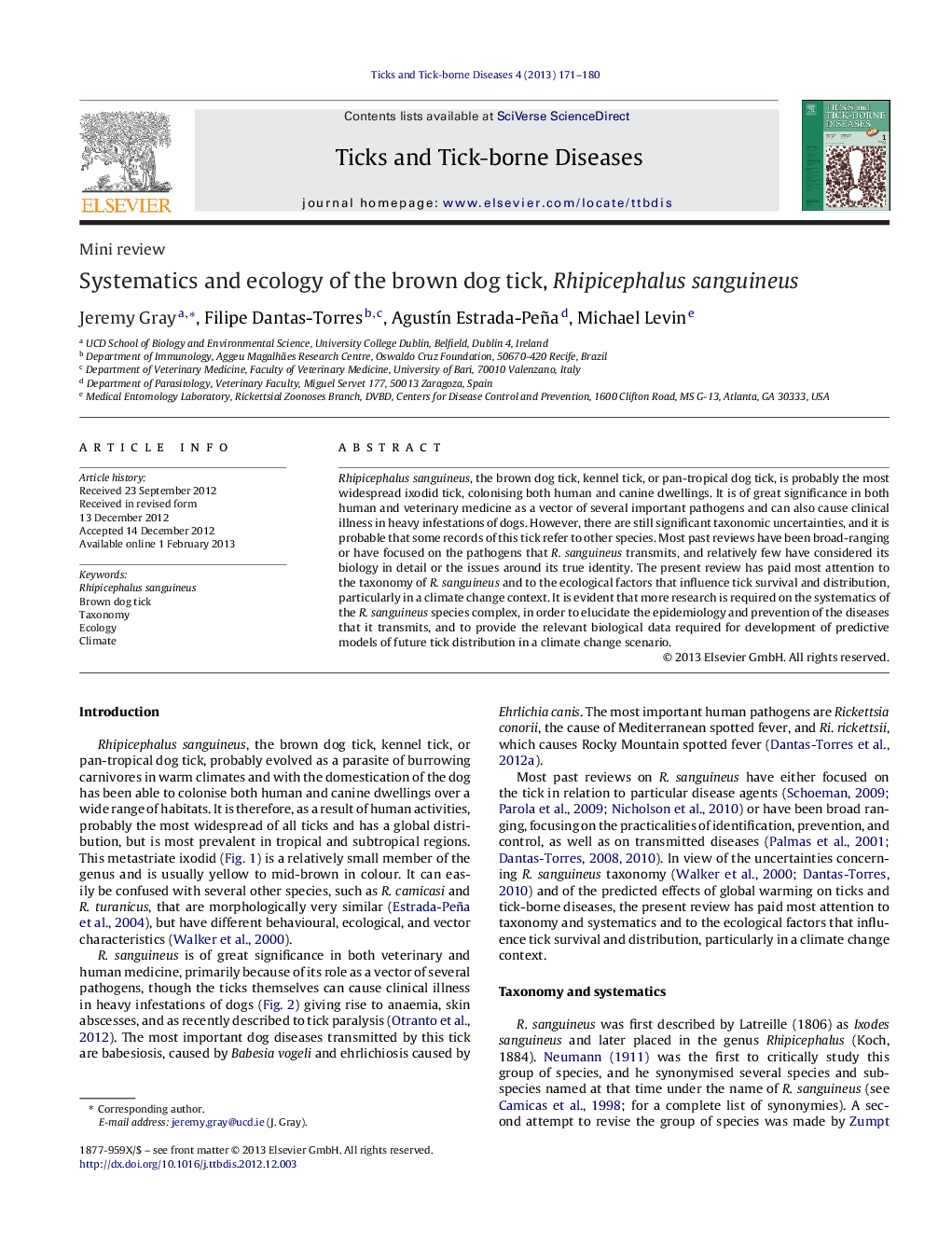| Article ID | Journal | Published Year | Pages | File Type |
|---|---|---|---|---|
| 2474162 | Ticks and Tick-borne Diseases | 2013 | 10 Pages |
Rhipicephalus sanguineus, the brown dog tick, kennel tick, or pan-tropical dog tick, is probably the most widespread ixodid tick, colonising both human and canine dwellings. It is of great significance in both human and veterinary medicine as a vector of several important pathogens and can also cause clinical illness in heavy infestations of dogs. However, there are still significant taxonomic uncertainties, and it is probable that some records of this tick refer to other species. Most past reviews have been broad-ranging or have focused on the pathogens that R. sanguineus transmits, and relatively few have considered its biology in detail or the issues around its true identity. The present review has paid most attention to the taxonomy of R. sanguineus and to the ecological factors that influence tick survival and distribution, particularly in a climate change context. It is evident that more research is required on the systematics of the R. sanguineus species complex, in order to elucidate the epidemiology and prevention of the diseases that it transmits, and to provide the relevant biological data required for development of predictive models of future tick distribution in a climate change scenario.
